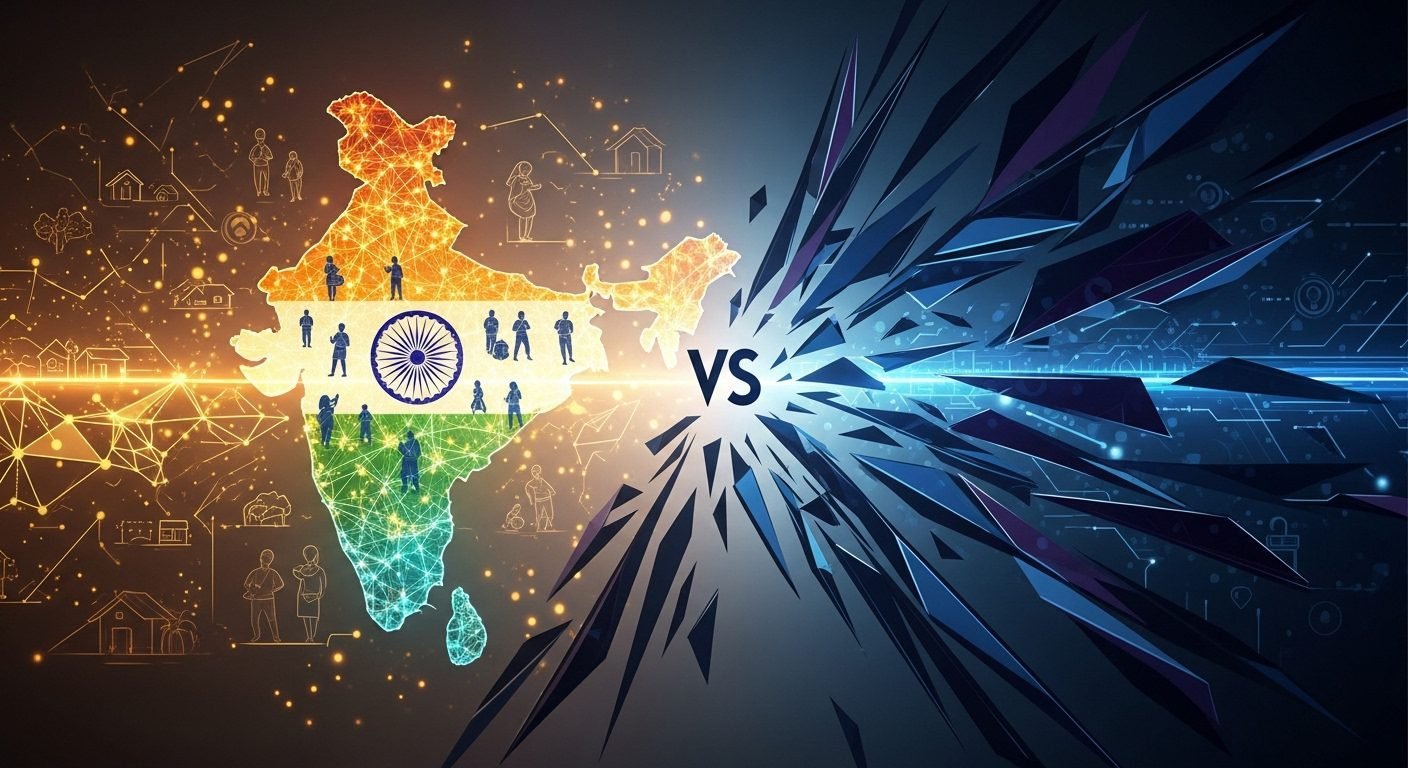“A ‘complete failure’ or a ‘monster win’?” The initial reactions to U.S. District Judge Amit P. Mehta’s ruling in the U.S. Justice Department’s antitrust case against Google on September 2, 2025, were sharply divided. Many investors hailed it as a “monster win” and a “home run ruling,” sending Alphabet’s stock soaring by 3% to 9% in extended trading. Their relief was palpable as the DOJ’s ambitious plea to break up Google or force divestiture of Chrome and Android was firmly rejected as “overreaching” and “incredibly messy and highly risky.”
Yet, to simply label this a victory for Google is to miss the far more profound, long-term implications now rippling across Silicon Valley. This decision, following Judge Mehta’s August 2024 finding of monopolistic behavior, is not merely a legal precedent; it is a future-shaping moment, profoundly altered by the very technology that defines our age: Artificial Intelligence. We are witnessing the subtle, yet powerful, re-architecting of the digital ecosystem, driven by forces far beyond the courtroom’s direct mandates.
The AI Crucible: Reshaping Competition Beyond the Search Bar
Perhaps the most visionary aspect of Judge Mehta’s ruling, and indeed the entire remedies phase, was his explicit acknowledgment that the rapid evolution of generative AI (GenAI) “reshaped” his approach to crafting remedies. This isn’t just judicial recognition; it’s a profound declaration that the rules of engagement in the digital arena are fundamentally changing. The judge noted that Google’s AI models do not hold a “distinct advantage” over rivals like ChatGPT and Perplexity in terms of factuality or technical benchmarks. This insight fundamentally alters the competitive calculus.
The ruling prohibits Google from entering or maintaining exclusive contracts for its search engine, Gemini AI app, Play Store, and virtual assistant. While Google can still make substantial payments—reportedly over $26 billion annually—for preloading and placement with partners like Apple and Samsung, the crucial shift is the non-exclusive nature of these deals. This doesn’t dismantle Google’s influence overnight, but it opens a vital crack in the monolithic wall that has long protected its distribution channels. Device manufacturers and app developers will now have increased flexibility to integrate competing AI services and alternative search options, fostering a more diverse and innovative product offering for consumers. This move directly responds to Google’s August 2024 finding of monopolistic behavior, signaling a clear intent to prevent the company from extending its anti-competitive tactics into the burgeoning GenAI space.
Future Frame: This shift towards non-exclusive agreements will unleash a torrent of innovation in AI distribution. Imagine a world where every device manufacturer becomes a curator, blending the best of Google’s foundational AI with specialized, niche AI services from a myriad of competitors. The battle for default settings will transform into a race for superior user experience, fundamentally altering how AI services reach billions and accelerating the pace of development across the entire sector.
A Trojan Horse of Data: Unlocking the Next Era of Digital Innovation
While the rejection of a structural breakup dominated headlines, the mandated sharing of Google’s prized search data represents a quietly revolutionary pivot. Google is now compelled to share portions of its search index and user interaction data (excluding advertising data) with qualified competitors for up to six years. Critics, like DuckDuckGo CEO Gabriel Weinberg, might dismiss these remedies as a “nothingburger,” fearing Google will continue to leverage its monopoly. However, history often teaches us that seemingly minor behavioral remedies can, over time, become powerful catalysts for seismic shifts.
Consider this: data is the lifeblood of modern AI. By granting rivals access to this foundational resource, the court has effectively planted a “Trojan Horse” within Google’s long-guarded data fortress. This isn’t merely about enabling existing competitors to marginally improve their offerings; it’s about providing the raw material for the next generation of AI-driven search engines and information retrieval systems to truly differentiate and innovate. The playing field, particularly in the “constant jockeying for a lead in quality among GenAI products,” has been subtly, yet profoundly, leveled. This mandate could accelerate the growth of the entire AI sector by providing nascent and established AI companies, including OpenAI, Meta, Anthropic, and xAI, with the crucial fuel they need to challenge Google’s long-held dominance. For consumers, this could translate into a proliferation of more intelligent, diverse, and personalized search and AI tools, potentially requiring them to take additional steps to access their preferred products as defaults shift.
Future Frame: The mandated data sharing will catalyze an explosion of specialized AI models. Picture AI tools that are hyper-tuned for medical research, legal discovery, or creative arts, each leveraging a portion of Google’s vast dataset to refine their capabilities. This isn’t just about competing with Google; it’s about splintering the concept of a “general search engine” into a multitude of intelligent, domain-specific AI companions, fundamentally redefining how we access and process information.
The Long Shadow of Redmond: A Glimpse into a Post-Monopoly Tech Landscape
The parallels to the Microsoft antitrust case of the early 2000s are undeniable and instructive. That case, initially viewed by some as a “failed bid to break up Microsoft,” ultimately led to behavioral remedies that, while not immediately revolutionary, laid the groundwork for significant competition in various sectors over the subsequent decades. Judge Mehta’s “carefully balanced approach,” prioritizing behavioral remedies over structural dismantling, echoes that historical precedent. This ruling strongly signals that future antitrust actions against tech monopolies, particularly in the AI era, will likely lean towards similar interventions rather than drastic breakups.
This paradigm shift forces us to look beyond the immediate stock market surge and consider the long game. Google’s statement that the decision “recognizes how much the industry has changed through the advent of AI” is a telling acknowledgment of the forces at play. While the company avoided a direct breakup, it now operates under a new set of rules, particularly concerning how it can leverage its market power in the rapidly evolving AI space. This will undoubtedly influence how other tech giants like Apple, Amazon, and Meta navigate their own ongoing regulatory challenges, potentially encouraging greater cooperation to avoid more severe structural remedies. The establishment of a technology oversight committee for six years underscores the court’s intent to monitor compliance.
Future Frame: We are entering an era where regulatory oversight itself becomes adaptive, driven by technological evolution rather than static legal frameworks. Future antitrust battles will not be fought over who controls the most data, but who can best leverage that data to create superior, ethical, and diverse AI experiences. This ruling lays the foundation for a new form of digital stewardship, where the very act of innovation is constantly scrutinized for its competitive impact, creating a dynamic, self-correcting ecosystem.
The next century of tech innovation will not be defined by who controls the most data, but by who can best leverage that data to create superior AI experiences. Google’s antitrust ruling, shaped by the transformative power of AI, is not an end point but a significant milestone in this journey. For marketers and SEO strategists, the message is clear: the traditional search landscape is shifting. As users increasingly migrate to AI search tools and “answer engines,” strategies will need to adapt to a more aggressive advertising environment and fundamentally re-evaluate how AI impacts ranking factors and engagement patterns. The paradigm shift we didn’t see coming is here, and it’s powered by the very algorithms we’re striving to understand. As experts suggest, the limits of these remedies may require courts to revisit their effectiveness over time, making vigilance paramount. Further reading on this complex topic can be found at The Limits of Antitrust Remedies in the Google Search Case.











